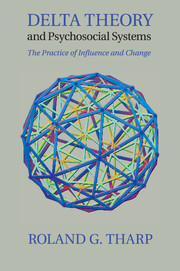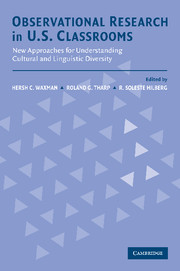Delta Theory and Psychosocial Systems
Delta Theory establishes the foundation for a true scientific applied psychology, a theory of how human influence induces change in others. Delta Theory is unified and universal, applying to all cultures, historical periods and goals for change. It integrates concepts and research from psychology, sociology, anthropology, evolution theory, philosophy, psychoneurology, cognitive science and cultural-historical-activity theory. Yet Delta Theory is clear, economical and elegant, with a full exposition of tactics for its practices. Rich examples are drawn from professional practices, but also from the creation and operations of criminals, healing ceremonies of indigenous peoples, and cross-species comparisons. This book ultimately seeks to describe how influence works, how it could be improved and how it can be resisted.
- Audacious in its ambition, Delta Theory is a first step toward a unified human science
- A rigorous integration of cross-disciplinary theory and research, it is written by a research scientist who is also a poet, bringing the subject alive
- Rich, lively examples of influence-and-change, historical and contemporary, professional and parental, cross-cultural and cross-species, benign and malign
Reviews & endorsements
“A psychologist by training and a poet in spirit, Tharp reaches across multiple disciplines and applications to weave a compelling theory of behavior influence and change. Delta Theory answers critics who dismiss modern behavioral and social science as a bundle of facts in search of conceptualization. Tharp has delivered what many have called for: a grand and testable theory. A generation of researchers and graduate students will find hypotheses aplenty to quarrel over and put to the test. Let the disputation and testing begin!”
–Ronald Gallimore, University of California, Los Angeles
"...overall, the book is written in a stylized scientific manner.... offers helpful illustrations of how delta theory can be used; examples range from how schools operate to effectively teach cohorts of children to how pimps recruit new young prostitutes.... Recommended..."
--C. J. Jones, California State University, Fresno, CHOICE
"...One learns a lot by reading [his] book.... This relatively brief book has range, and the author knows many things, most of which he cites and uses to explain his universal theory."
–Dr. Kurt Salzinger, Senior Scholar in Residence, Hofstra University, PsycCRITIQUES
Product details
November 2011Hardback
9781107014916
206 pages
229 × 152 × 13 mm
0.45kg
11 b/w illus.
Available
Table of Contents
- Part I. The Theory of Influence and Change:
- 1. Introduction and overview
- 2. Psychosocial systems and the exercise of influence
- 3. The zone of proximal development, activity, and semiotics
- 4. The means of influence
- 5. The organization of activity
- 6. Unifying the study of culture and psychology: philosophical and scientific Issues
- Part II. The Practice of Influence and Change:
- 7. Influencing and change: delta theory of practice
- 8. A natural history museum of influence and change: dioramas
- 9. Who influences? The triadic model of influence and change
- 10. Basic tactics and strategy in designing influence
- 11. Cultural patterns in the practice of influence
- 12. Challenges, research, and future development.







